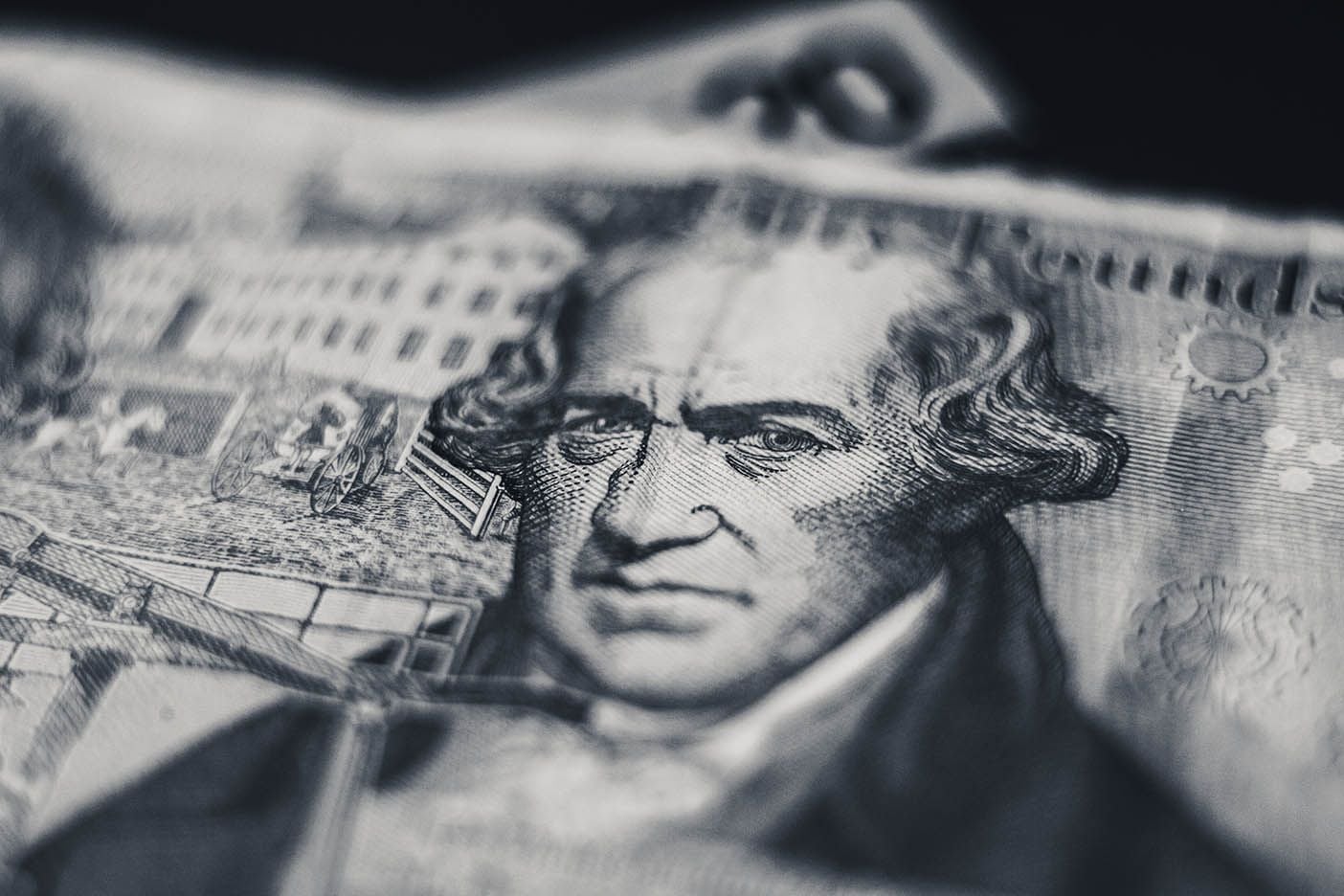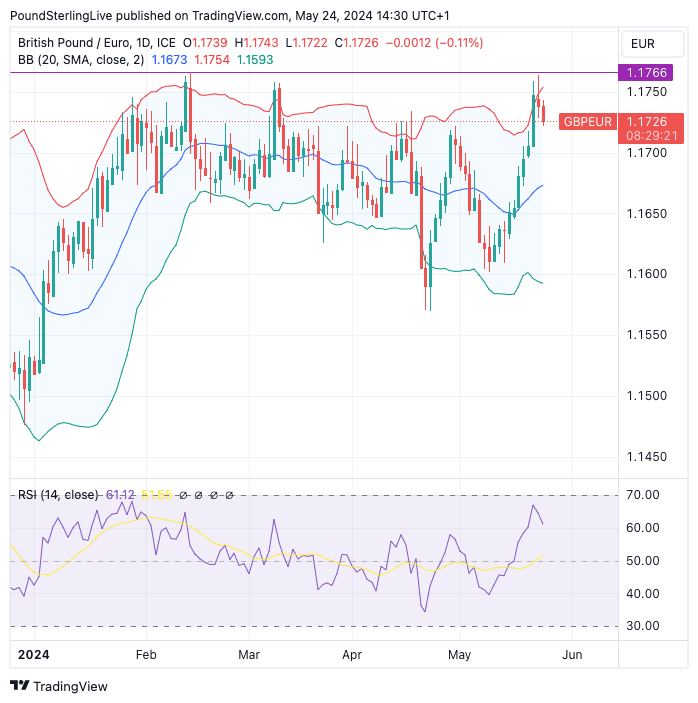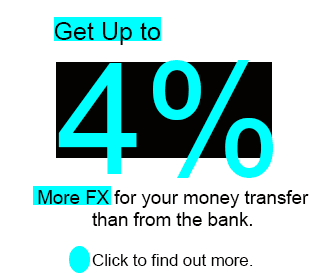
Image © Adobe Images
The pound to euro rate is expected to fall back into the 2024 range as the post-inflation rise loses momentum, and may test levels below 1.17 in the week commencing 27 May.
The pound has reasserted its status as the best-performing G10 currency for 2024 following higher-than-expected inflation figures last week, but its rise against the euro has encountered familiar resistance and could see it fall further in the coming days.
“We expect EUR/GBP to remain within the established range and with the pair currently trading close to the lower limit, investors could position for a short-term bounce,” said Thomas Fleury, a strategist at UBS who sees the euro recovering against the pound.
GBP/EUR rose to 1.1763 last week, within a few pips of the 2024 high, but the exchange rate has repeatedly refused to trade above 1.1720 for any period.

Above: Pound vs. Euro is predicted to fall. The chart shows the daily interval with RSI and Bollinger Bands. Track GBP/EUR with your own custom rate alerts. Set here
The chart above shows that the exchange rate rose to the upper end of the envelope created by the Bollinger Bands, a technical analysis that suggests when the exchange rate will start to move out of its range.
The momentum-gauging RSI was also approaching an overbought level at 70 but is now turning down, further supporting the possibility that the rally is weakening.
The good news for those hoping for a decisive rally in the GBP/EUR is that both currency pairs remain constructive, staying above their key moving averages. If the exchange rate can stabilize above 1.17 this week, it could lay the foundations to propel the pound to multi-month highs in the coming weeks.
The market's perception that the Bank of England will not cut interest rates in June favours further gains for GBP – indeed, the market appears to expect the first rate cuts to be fully priced in by September.
By this stage, the European Central Bank will likely have cut rates twice and a central bank divergence will have been established that instinctively supports GBP/EUR appreciation.
But again, the inability of the pair to sustain above 1.1720 for more than a day or two should be a concern for anyone looking to make a short-term payment. There is clearly significant speculative and real interest in selling GBP on a bull run in this region.

No major announcements from the UK this week, but Eurozone inflation numbers will be in focus on Friday. Germany will release its inflation numbers on Wednesday, which is noteworthy as they are often a guide to where the final numbers are headed.
Germany's consumer price index is expected to grow 2.8% year-on-year, while the eurozone's consumer price index is expected to grow 2.5%. A rule of thumb is that a downside risk would encourage the ECB to cut interest rates, which could weigh on the euro. Conversely, an upside risk means the numbers will sway higher.
But UBS strategist Thomas Fleury said the impact of the data will likely be short-lived, and that stronger-than-expected data likely won't change the ECB's firm stance on a rate cut in June.
“Indeed, the combination of high inflation and low interest rates is negative, so a surprise upside would weigh on the euro. But a weaker than expected surprise would further support the euro, since low inflation and low interest rates typically lead to relief-induced appreciation of the currency,” Fraley said.
This market reaction is the opposite of what the playbook calls for, making the coming week interesting.

